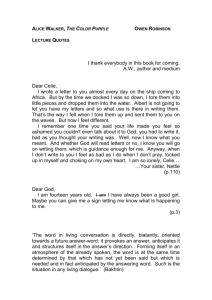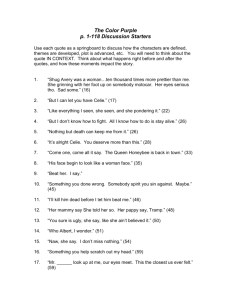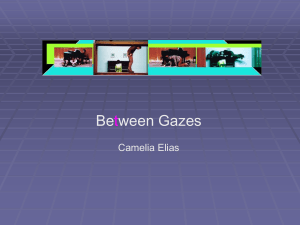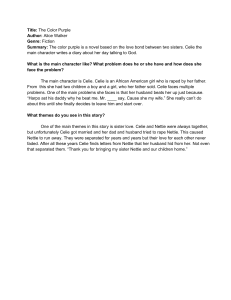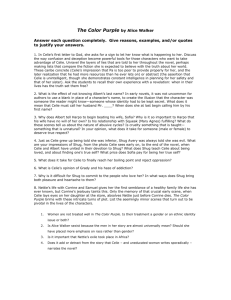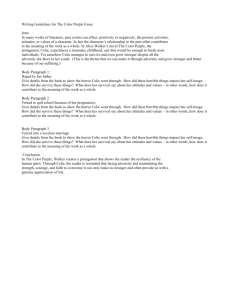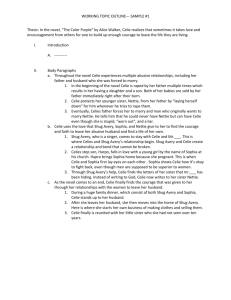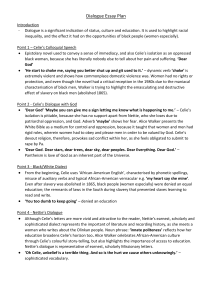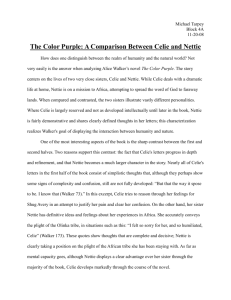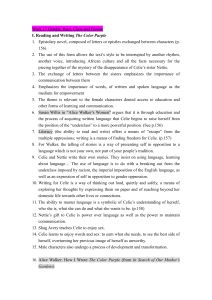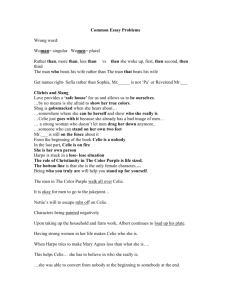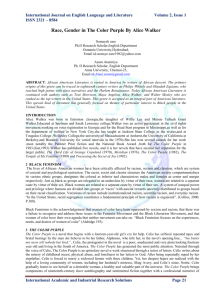29576,"shug avery quotes",13,,,210,http://www.123helpme.com/view.asp?id=8649,2.4,18100,"2016-02-17 10:17:29"
advertisement
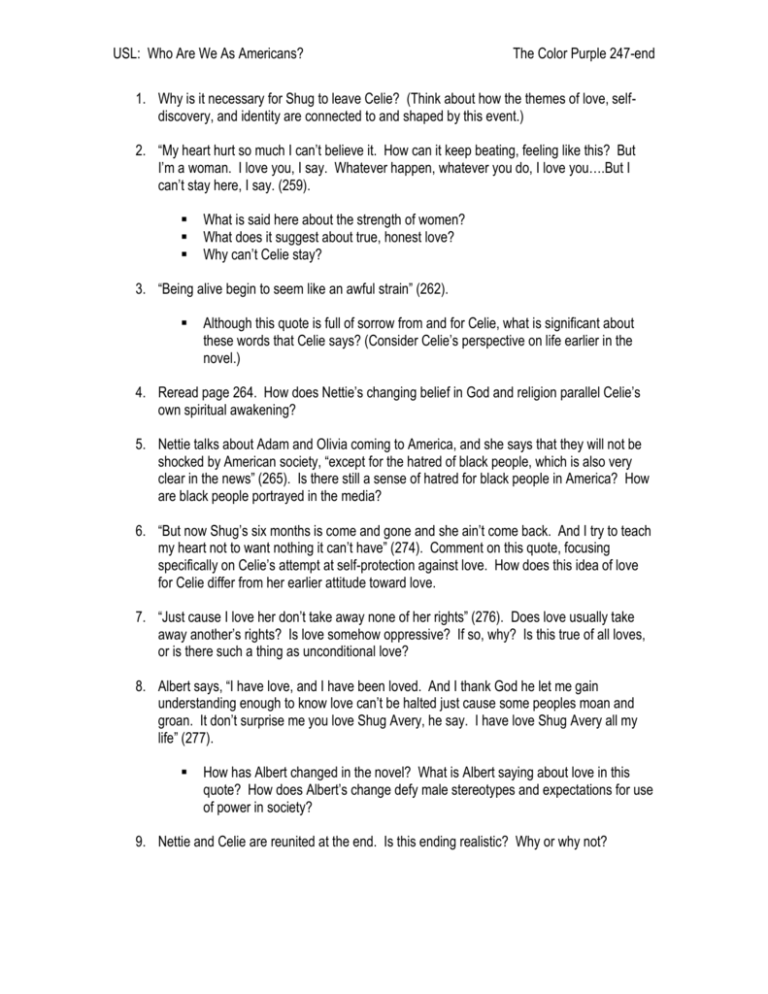
USL: Who Are We As Americans? The Color Purple 247-end 1. Why is it necessary for Shug to leave Celie? (Think about how the themes of love, selfdiscovery, and identity are connected to and shaped by this event.) 2. “My heart hurt so much I can’t believe it. How can it keep beating, feeling like this? But I’m a woman. I love you, I say. Whatever happen, whatever you do, I love you….But I can’t stay here, I say. (259). What is said here about the strength of women? What does it suggest about true, honest love? Why can’t Celie stay? 3. “Being alive begin to seem like an awful strain” (262). Although this quote is full of sorrow from and for Celie, what is significant about these words that Celie says? (Consider Celie’s perspective on life earlier in the novel.) 4. Reread page 264. How does Nettie’s changing belief in God and religion parallel Celie’s own spiritual awakening? 5. Nettie talks about Adam and Olivia coming to America, and she says that they will not be shocked by American society, “except for the hatred of black people, which is also very clear in the news” (265). Is there still a sense of hatred for black people in America? How are black people portrayed in the media? 6. “But now Shug’s six months is come and gone and she ain’t come back. And I try to teach my heart not to want nothing it can’t have” (274). Comment on this quote, focusing specifically on Celie’s attempt at self-protection against love. How does this idea of love for Celie differ from her earlier attitude toward love. 7. “Just cause I love her don’t take away none of her rights” (276). Does love usually take away another’s rights? Is love somehow oppressive? If so, why? Is this true of all loves, or is there such a thing as unconditional love? 8. Albert says, “I have love, and I have been loved. And I thank God he let me gain understanding enough to know love can’t be halted just cause some peoples moan and groan. It don’t surprise me you love Shug Avery, he say. I have love Shug Avery all my life” (277). How has Albert changed in the novel? What is Albert saying about love in this quote? How does Albert’s change defy male stereotypes and expectations for use of power in society? 9. Nettie and Celie are reunited at the end. Is this ending realistic? Why or why not?
